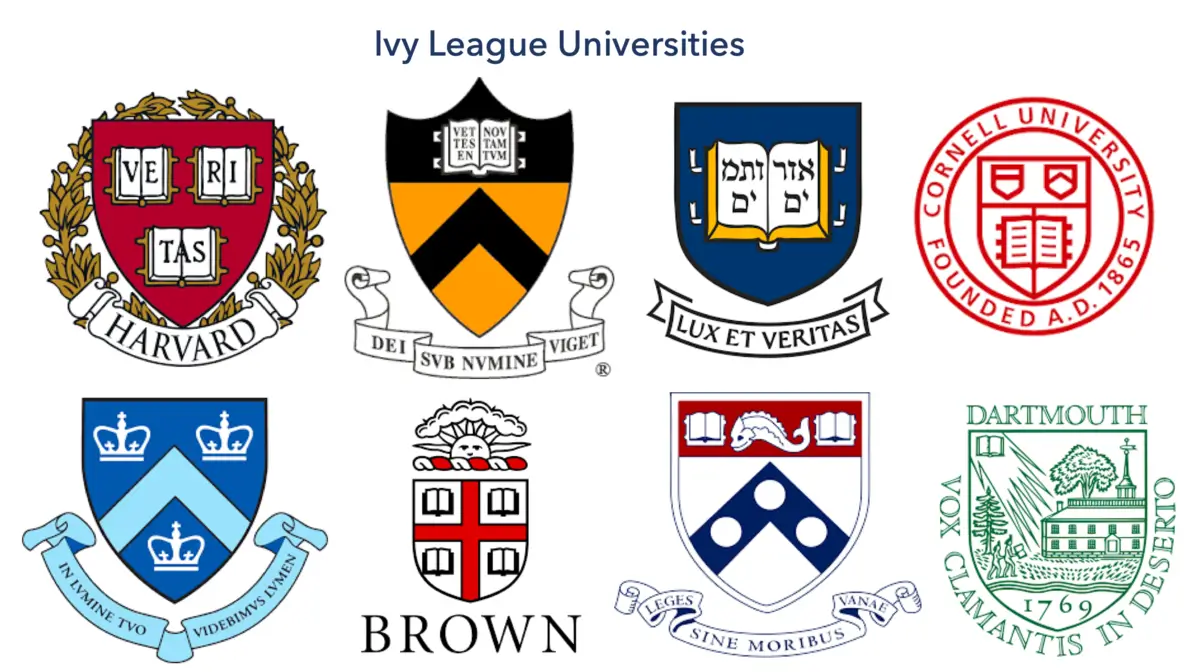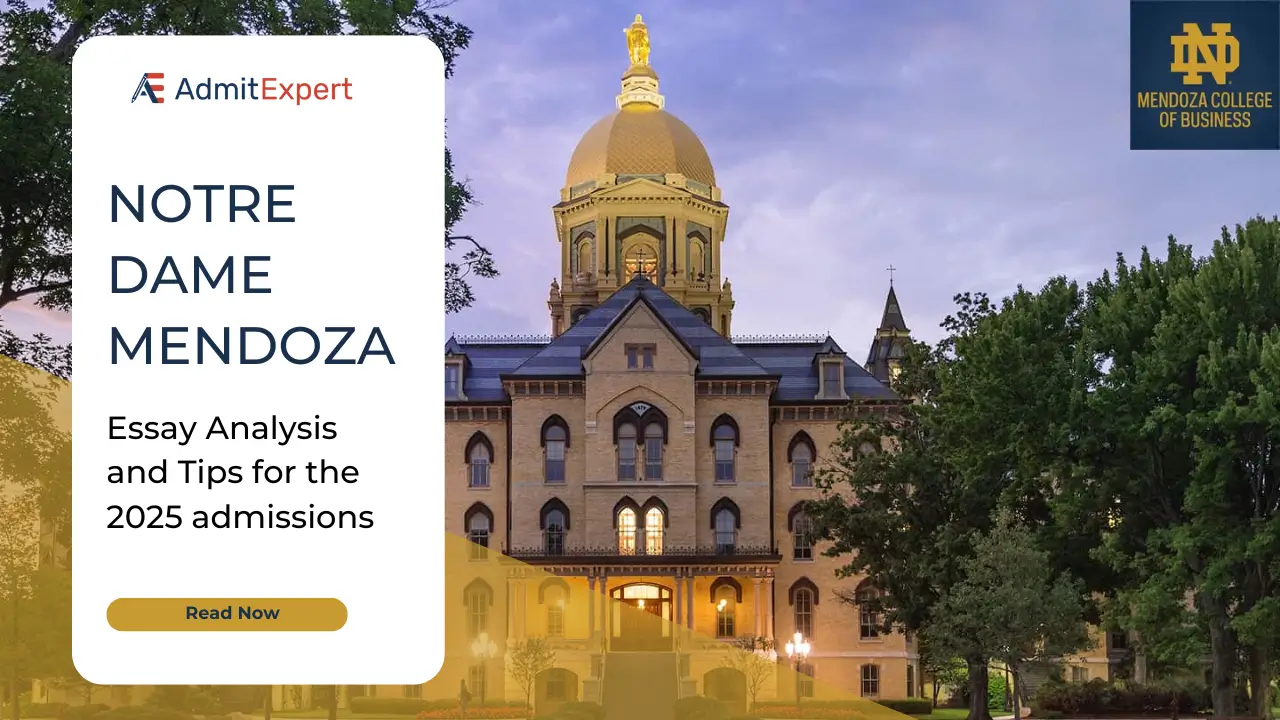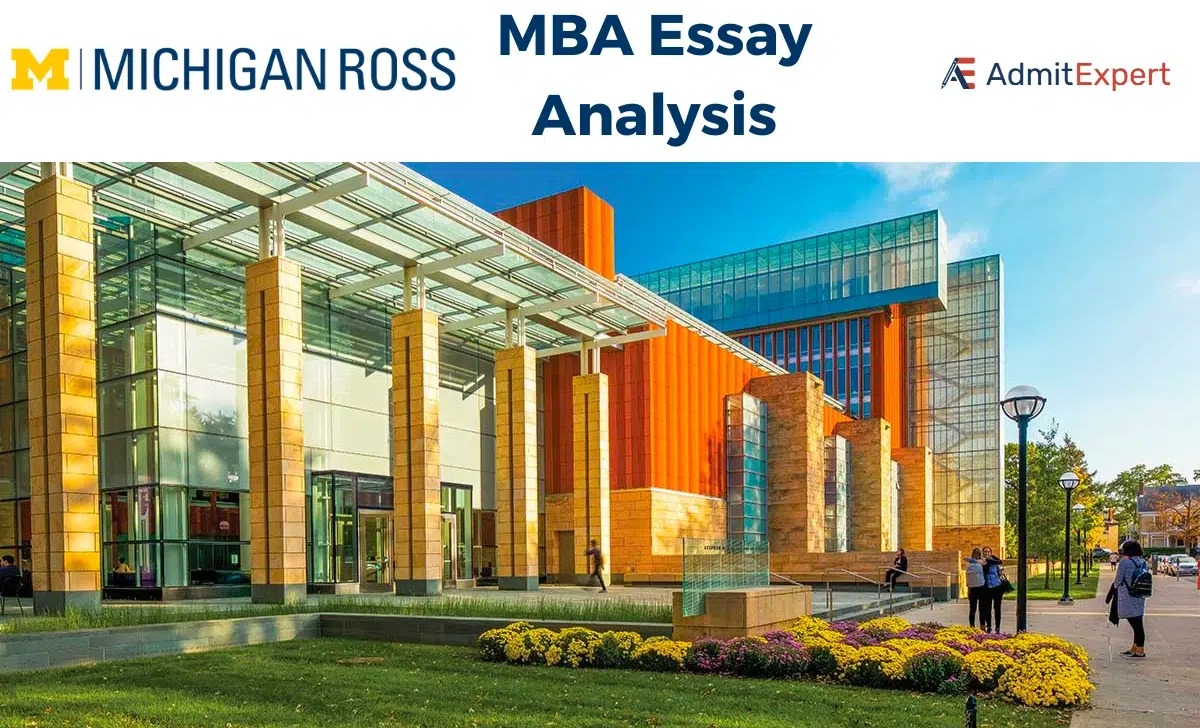The Ivy League is a collegiate athletic conference comprising eight private research universities in the Northeastern United States. The term ‘Ivy League’ is typically used beyond the sports context to refer to the eight schools as a group of elite colleges with significant historical importance.

Ivy League universities are some of the most prestigious and selective colleges globally, and they are known for their high academic standards. Admission to an Ivy League university is highly competitive, and students who are accepted can expect a rigorous academic experience. All eight Ivy League schools are ranked among the top 15 National Universities in the United States by U.S. News & World Report.
6 out of the 8 Ivy League universities offer MBA programs. If your dream is to pursue an MBA from one of these Ivy League universities, this article is for you.
In this article, we will list the Ivy League universities and compare their MBA programs based on different rankings, class profiles, and employment outcomes.
Ivy League Universities
Ivy League is a group of eight elite universities situated in the north-eastern part of the U.S, with connotations of academic excellence, social elitism, and selectivity in admissions.
Here is the list of Ivy League universities:
- Harvard University
- Columbia University
- University of Pennsylvania
- Dartmouth College
- Cornell University
- Yale University
- Princeton University
- Brown University
MBA programs at Ivy League Universities
Out of the 8 Ivy League universities, 6 offer a full-time MBA program. Here are the six Ivy League schools that offer MBA programs:
| University | Full-time MBA program |
|---|---|
| Harvard University | Harvard Business School |
| Columbia University | Columbia Business School |
| University of Pennsylvania | The Wharton School |
| Dartmouth College | Tuck School of Business |
| Cornell University | Johnson College of Business |
| Yale University | Yale School of Management |
Princeton University does not offer a full-time MBA program but offers a Master in Finance degree that strongly emphasizes financial economics, data science, financial engineering, and emerging tools in FinTech.
Brown University also does not offer a full-time MBA program. However, they have a joint Executive MBA degree with IE Business school. The duration is 15 months (part-time) and targets mid-career professionals. With a smaller class size (30), the program integrates an innovative management curriculum with humanities and liberal arts.
This article will focus on the Ivy League schools that offer a full-time MBA program.
Ivy League MBA programs ranking
Take a look at the Ivy League business schools ranking according to US News, Bloomberg, Financial Times, and Forbes:
| Ivy League Business schools | U.S. News (2022) | Bloomberg (2021-22) | Financial Times (2022) | Forbes (2019) |
|---|---|---|---|---|
| Harvard Business School | 5 | 3 | 3 | 4 |
| Columbia Business School | 8 | 6 | 2 | 7 |
| Wharton Business School | 1 | 9 | 1 | 5 |
| Tuck School of Business | 11 | 2 | 18 | 6 |
| Johnson College of Business | 15 | 20 | 17 | 9 |
| Yale School of Management | 7 | 12 | 9 | 11 |
The ranking methodology is different for each ranking institute. However, they generally compare the b-schools based on their career placement success, student excellence, diversity, and return on investment.
Ivy League MBA Rankings by specialization
Take a look at the MBA specialization ranking for Ivy League Business Schools:
| Ivy League Business schools | Consulting | Finance | Information Management | Marketing | Tech | Entrepreneurship |
|---|---|---|---|---|---|---|
| Harvard Business School | 12 | 3 | 4 | 8 | 5 | 3 |
| Columbia Business School | 4 | 4 | 18 | 11 | 21 | 15 |
| Wharton Business School | 6 | 1 | 6 | NA | 10 | 6 |
| Tuck School of Business | 17 | 21 | 45 | 51-100 | 31 | 51-100 |
| Johnson College of Business | 21 | 9 | 39 | 50 | 29 | 26 |
| Yale School of Management | 11 | 12 | 27 | 51-100 | 35 | 25 |
MBA Class Profile 2023 – Ivy League Business schools
Harvard and Columbia MBA programs have the lowest acceptance rate compared to other Ivy League business schools. Harvard stands at 9.2% and Columbia at 13.6%.
The average GMAT score to get into Ivy League business schools is 720+, with an average GPA of 3.6. Wharton Business School ranks #1 by enrolling the highest no. of female candidates (52%) compared to other Ivy League b-school.
The average work experience of an incoming Ivy League MBA Class is approx. 4.9 years, with more than 35% of the class being international students on an average. Columbia Business school ranks #1 for enrolling the highest no. of international students compared to other Ivy League schools.
Take a look at the table below that represents the MBA Class of 2023:
| Ivy League Business schools | Class size | Average GMAT | Work exp. | % international students | % Women | GPA | Acceptance rate (Class 2022) |
|---|---|---|---|---|---|---|---|
| Harvard Business School | 1010 | 730 | 5 | 37% | 46% | 3.69 | 9.2% |
| Columbia Business School | 847 | 729 | 5 | 48% | 41% | 3.5 | 13.6% |
| Wharton | 897 | 733 | 5 | 36% | 52% | 3.6 | 23.1% |
| Tuck School of Business | 294 | 724 | 5.4 | 41% | 46% | 3.54 | 34.8% |
| Cornell Johnson College of Business | 304 | 710 | 5 | 35% | 39% | 3.34 | 39.6% |
| Yale School of Management | 349 | 730 | 4.4 | 44% | 43% | 3.69 | 29.7% |
MBA Cost and post-MBA salary at Ivy League Universities
The total MBA cost for Ivy League business schools is more than $100,000 per year, with an average tuition fee of approx. $78,000 per year. Although the cost of an MBA at Ivy League schools is on the higher end, the prestige and opportunities they offer are exceptional. Almost 95% of the MBA class gets a job offer after 3 months of graduation.
The median base salary of an Ivy League MBA graduate is approx. $147,000, with a signing bonus of approx. $ 31,000.
Take a look at the table below that showcases the tuition fees, total MBA cost, and post-MBA salary at Ivy League business schools:
| Ivy League Business schools | MBA Cost (Class of 2023) | Tuition | Median Base Salary (2021) | Median Signing Bonus (2021) | Job Offer Post 3 months grad (2021) |
|---|---|---|---|---|---|
| Harvard Business School | $ 113,042 | $73,400 | $ 150,500 | $ 30,000 | 96% |
| Columbia Business School | $ 118,777 | $ 77,376 | $ 150,000 | $ 30,000 | 94% |
| Wharton Business School | $ 118,568 | $ 84,874 | $ 155,000 | NA | 96.8% |
| Tuck School of Business | $ 119,454 | $ 77,520 | $ 150,000 | $ 30,000 | 98% |
| Johnson College of Business | $ 107,697 | $ 76,690 | $ 139,121 | $ 37,684 | 97% |
| Yale School of Management | $ 108,780 | $ 79,000 | $ 140,400 | $ 30,000 | 96% |
Financial Aid at Ivy League Business schools
MBA from an Ivy League business school can cost you anywhere between $100,000 to $120,000 per year. Ivy League business schools offer various scholarship programs and awards based on financial needs, diversity, merit, and gender to reduce the economic cost of pursuing an MBA.
For example, all Yale and Tuck MBA applications are considered for a merit-based scholarship. There is no separate application process for it. Tuck’s MBA scholarship can range from $10,000 to full tuition, with the average being $29,600 per academic year. Over 35% of Cornell Johnson students receive scholarship assistance, and it has over $14 million in scholarship funds to award each year.
Ivy business schools like Harvard and Columbia offer need-based scholarships, ranging from a couple of thousand to $30,000.
There are student loans that a candidate can avail themselves. Here is the debt-to-income ratio of Ivy League business school graduates. Students have debt lesser than income when the ratio is below 1:
| Ivy League Business schools | Debt-to-income ratio | Median Income after two years |
|---|---|---|
| Harvard Business School | 0.24 | $ 1,71,907 |
| Columbia Business School | 0.36 | $ 1,70,426 |
| Wharton Business School | 0.27 | $ 1,75,674 |
| Tuck School of Business | 0.25 | $ 1,67,295 |
| Johnson College of Business | 0.69 | $ 1,45,332 |
| Yale School of Management | 0.47 | $ 1,47,858 |
Top industry Placement at Ivy League
The top 3 industries where Ivy MBA grads get hired are Consulting, Technology, and Finance. Harvard, Tuck, and Yale hired a majority of their MBA class in consulting, whereas Wharton, Columbia, and Johnson hired in Finance. Take a look at this table to know the top 3 industries where Ivy League business schools graduates got placed in 2021:
| Ivy League Business schools | Consulting | Finance | Technology |
|---|---|---|---|
| Harvard Business School | 1 | 3 | 2 |
| Columbia Business School | 2 | 1 | 3 |
| Wharton Business School | 2 | 1 | 3 |
| Tuck School of Business | 1 | 2 | 3 |
| Johnson College of Business | 2 | 1 | 3 |
| Yale School of Management | 1 | 2 | 3 |
Consulting
The average of the median base salary is approx. $155,000, with at least 23% of the Ivy League business schools’ class hired in consulting Industry:
| Ivy League Business schools | Median Base Salary | % of graduates |
|---|---|---|
| Harvard Business School | $ 1,65,000 | 23% |
| Columbia Business School | $ 1,42,500 | 33.4% |
| Wharton Business School | $ 1,41,000 | 27.2% |
| Tuck School of Business | $ 1,65,000 | 36% |
| Johnson College of Business | $ 1,55,000 | 27% |
| Yale School of Management | $ 1,65,000 | 34.2% |
Finance
The average of the median base salary is approx. $147,600, with more than 13% of the Ivy League business schools’ class hired in the Finance Industry:
| Ivy League Business schools | Median Base Salary | % of graduates |
|---|---|---|
| Harvard Business School | $ 1,60,000 | 14% |
| Columbia Business School | $ 1,26,125 | 36% |
| Wharton Business School | $ 1,50,000 | 35.1% |
| Tuck School of Business | $ 1,50,000 | 23% |
| Johnson College of Business | $ 1,50,000 | 36% |
| Yale School of Management | $ 1,50,000 | 13.8% |
Technology
The average of the median base salary is approx. $141,200, with more than 10% of the Ivy League business schools’ class hired in the Technology industry:
| Ivy League Business schools | Median Base Salary | % of graduates |
|---|---|---|
| Harvard Business School | $ 1,50,000 | 19% |
| Columbia Business School | $ 1,32,612 | 17% |
| Wharton Business School | $ 1,65,000 | 18.6% |
| Tuck School of Business | $ 1,30,000 | 15% |
| Johnson College of Business | $ 1,30,000 | 17% |
| Yale School of Management | $ 1,40,000 | 10% |
Ivy League vs. M7 business schools
Ivy League business schools include – Harvard, Columbia, Wharton, Tuck, Johnson, and Yale. However, the M7 business schools include Stanford, Kellogg, Chicago Booth, MIT Sloan, Harvard, Wharton, and Columbia. Here are the parameters that differentiate Ivy league from M7 business schools:
The Origin
M7 business schools – Stanford GSB, Kellogg, Chicago Booth, and MIT Sloan – are not considered a part of Ivy League business schools because they did not excel at sports when the Ivy League was created. The Ivy League was formed by eight schools that have competitive sports rivalry. University of Pennsylvania and Princeton have been longtime basketball rivals. At the same time, Harvard has a football and hockey rivalry with Penn and Cornell, respectively.
The purpose of establishing a group known as the ‘M7 business schools’ was to create an informal network of the seven most influential business schools that would meet up every year to discuss matters related to graduate management education.
Ranking
The M7 business schools rank among the top 11 best business schools across various rankings like US News, Forbes, Bloomberg Businessweek, and Financial Times. The Ivy League business schools rank among the top 20.
Acceptance Rate
The average acceptance rate at Ivy business schools is 25%, whereas, for M7 business schools is 17% (MBA Class 2020). That’s because Cornell Johnson, Dartmouth Tuck, and Yale SOM have a higher acceptance rate of 39.6%, 34.8%, and 29.7%, respectively. So, the overall probability of getting into Ivy League business schools is more than getting into M7 business schools.
Post-MBA Salary
The average cost of attendance for an MBA at Ivy League Schools and M7 business schools is similar. However, the post-MBA salary is slightly different. The median post-MBA salary of Ivy League business schools is $147,000 whereas it is $152,700 for M7 business schools. The median base salary (MBA Class 2021) is more than $150,000 for Ivy League and M7 business schools, except for Johnson and Yale.
Top Industry hires
The top 3 recruiting industries at M7 and Ivy business schools are the same – Consulting, Finance, and Technology. However, M7 business schools send more MBA grads to the technology industry than Ivy League schools:
| Ranking | Consulting | Finance | Technology |
|---|---|---|---|
| Ivy League Business Schools | 23% | 13% | 10% |
| M7 Business Schools | 22% | 13% | 16% |
Take a look at the median salary of Ivy League and M7 business schools for the top 3 industries that hired a majority of the MBA grads:
| Median base salary | Consulting | Finance | Technology |
|---|---|---|---|
| Ivy League Business Schools | $ 1,55,000 | $ 1,47,600 | $ 1,41,200 |
| M7 Business Schools | $ 1,56,214 | $ 1,53,017 | $ 1,44,516 |
Ivy League Schools – FAQs
The ancient 8, also referred to as Ivy League, includes Harvard University, Columbia University, Cornell University, Princeton University, Yale University, Brown University, Dartmouth College, and the University of Pennsylvania.
Stanford is not a part of the Ivy League because the Ivy League was formed for schools that distinguished themselves through exceptional sports performances like football and basketball. Stanford didn’t possess the sporting skills required at that time. Also, Stanford is located on the west coast, unlike the Ivy League universities that are located on the East coast. Thus, Stanford is not a part of the Ivy League.
Yes. Six out of the eight Ivy League universities offer full-time MBA programs. Read this article to learn about the MBA class profile and employment outcome.
No. Kellogg School of Management is not an Ivy League business school.
The average work experience of MBA Class of 2023 for the six Ivy League business schools is 4.9 years. So, somewhere around 5 years is a good amount of work experience to get into Ivy League business schools.




